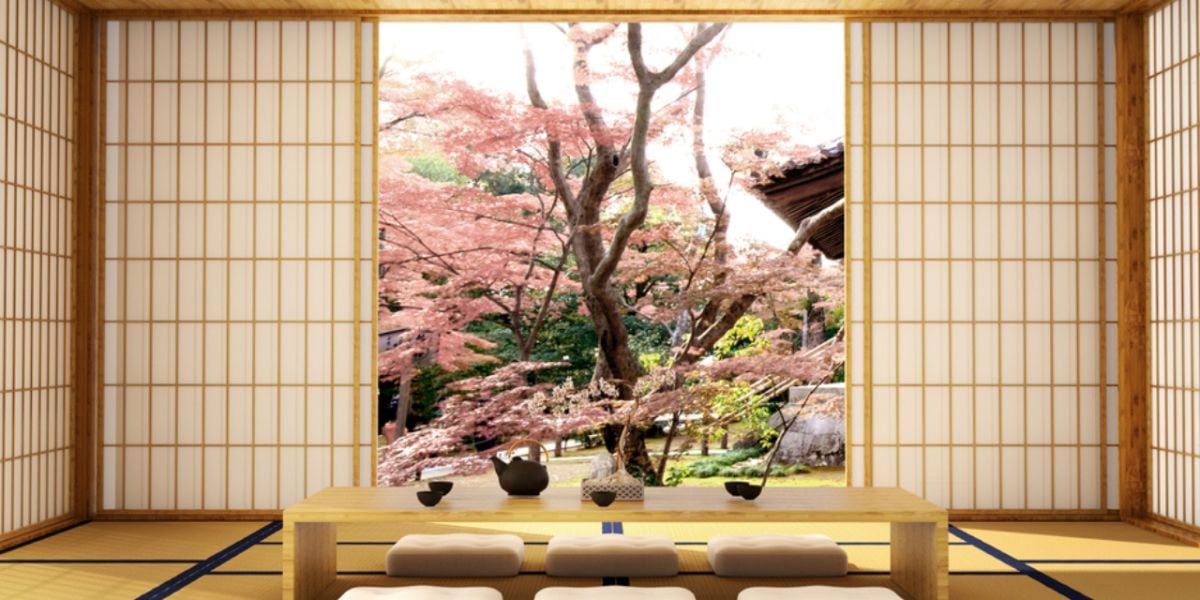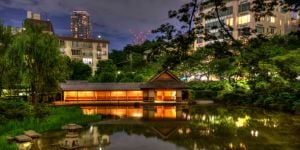
There are many misconceptions about finding accommodation in Japan that might scare expats. It might seem complicated, with expensive and rare accommodation, the obligation to have a guarantor, unforeseen fees by the contract, etc. However, the reality is not so dark. Here are some tips for planning your move to Japan and securing accommodation.
What should you keep in mind when choosing your accommodation?
With houses, apartments, flat sharing, sharehouses, youth hostels, bed and breakfasts, hotels, and ryokan (traditional inn), looking for accommodation in Japan quickly becomes a headache. If you speak little or no Japanese, the language barrier can add extra stress but don't panic. Before surfing the various housing rental websites, you must define your expectations according to your situation clearly.
Purpose of your trip
Why are you in Japan? Are you on a tourist trip, or are you coming for business? Which visa do you hold? Is it a tourist visa, a student visa, a work visa, or a Working Holiday Visa (WHV) for Japan? The reason for your stay will largely influence your choice of accommodation.
The duration of your stay
If you have secured a job in Japan, you may have a work visa of one year or more. The same applies if you are a student (one year renewable). The Japanese Working Holiday Visa (WHV) is not renewable and valid for one year. Short visas for tourists and businesses are, as their name indicates, reserved for short stays, generally less than 90 days. Extended stays mean a larger budget. On the other hand, short-stay travelers can, depending on their budget, opt for high-end accommodation or not.
Are you traveling solo, with friends or family?
A solo expatriate will perhaps have fewer constraints and fewer requirements in terms of accommodation. A single room may suffice. Going with a family requires more organization. There is the choice of neighborhood, housing, number of rooms to live in, and proximity to schools, shops, and transportation.
Of course, the same questions are just as crucial for the solo traveler and apply to friends who decide to move in together. Will personalities adapt to the new life in Japan?
A group of friends does not necessarily mean sharing a flat. The same goes for solo travelers who will not necessarily go for shared houses, hostels, etc. They may be looking for more privacy and will opt for a studio or an apartment.
The host city
The choice of city can weigh heavily on your housing budget. Tokyo, the capital city, is more expensive than Fukui, Fukuoka, or Okayama. Even more than the city, the district where you live is essential to your budget. Renting an apartment in the center of Shinjuku or on the outskirts of the border with Saitama can make the rent go from simple to double.
The same calculation applies to the capitals of famous prefectures such as Osaka, Fukuoka, or Kyoto. Rents will be cheaper in small towns and the Japanese countryside, but that option may only suit some.
Starting budget
How much money do you have for your accommodation in Japan? Prices will vary depending on the neighborhood, the type of property, its size, its condition (new/old furnished or not, additional services), and agency fees.
In Tokyo, for example, an average one-room apartment of about 15 to 20 m² can be rented at about 50,000 or more. Moreover, the same apartments in Sapporo (Hokkaido Island, in the North of Japan), Niigata (a coastal city in the North of Honshu, the main island), or Kagoshima (a town in the South of Kyushu) will have a different price.
Seeking help from a real estate agency in Japan
Japanese people usually rely on fudôsanya, which are traditional real estate agencies. Unfortunately, Japanese property owners do not always accept letting to foreigners.
The solution is to turn to real estate agencies that are open to foreigners. They are easily recognizable. They have multilingual staff (mostly English, Vietnamese, Chinese, Spanish, French, etc.) and offer services and products tailored to the needs of foreigners.
The conditions are generally more flexible than a classic real estate agency (no unnecessary fees, no need for a guarantor, etc.).
Define your preferences
Are you looking for a house or an apartment? Are you looking to buy or rent? You will probably have specific preferences depending on your situation, the purpose of your move to Japan, your budget, your prospects, and your preferred location.
Foreigners who settle in Japan for the long term may choose to buy a house or an apartment. Others may just prefer renting.
Good to know:
To rent accommodation in Japan on a long-term basis (more than three months), you need to have a valid residence permit.
Choosing a real estate agency
Japan has two types of real estate agencies: traditional ones and those dealing with foreigners.
Fees for real estate agencies
Former fees adopted by real estate agencies are as follows:
- Reikin: An amount of money paid to the owner as a thank you. It can be as much as two to three months' rent;
- Shikin: deposit;
- Shikikin, or hoshôkin: A non-compulsory guarantee. Your guarantor can be a legal entity or an individual. The company or the real estate agency can act as a guarantor for you. One year of guarantee is generally equivalent to one month's rent;
- Chûkai tesûryô: Agency fees. They are equivalent to about one month of rent;
- Kôshinryô: Fees to pay to renew your lease. In Tokyo, an apartment lease usually lasts two years. Don't hesitate to discuss reducing the costs with the real estate agency if you know you will stay for over two years;
- Kasai hoken: Fire insurance. In practice, you sign this insurance contract simultaneously with your rental contract.
Fudôsanya (traditional or classic real estate agencies) are adapting to the market. Many of these fees are no longer charged by fûdosanya, the conventional real estate agency. Just as some banks in Japan have adapted to the rise in immigration, such as Shinsei Bank, which offers its services in English, traditional real estate institutions have adapted to the changing migration market. Some have agents who speak English and/or other languages. Others rent to both Japanese and foreigners (only long-term rentals).
Although attitudes are slowly changing, many landlords still need to be convinced to rent their properties to foreigners.
The real estate agency may ask you to provide proof of income, like a copy of your work contract. As mentioned above, rental agreements are generally made for an average of 2 years, but shorter lease periods also exist.
Agencies renting to foreigners have developed several packages, like specific one-month or multi-month rentals, to better adapt to the demand.
Types of accommodation in Japan
In Japan, most apartments have a standard lease term of 2 years. However, renting a short-term apartment would be more practical if you plan to stay for a shorter period. The lease term for these apartments can range from 2 weeks up to 180 days, depending on the property.
Different housing options are available in Japan: studios, Western-style apartments, Japanese-style apartments, houses, and sharehouses. Due to population density, especially in big cities like Tokyo or Yokohama, you will find many tiny accommodation options.
Acronyms used to describe Japanese housing:
- 1 = 1 room;
- R = Room;
- L = Living room;
- D = Dining room;
- K = Kitchen.
Thus, apartments are labeled 1R, 3LDK, 4LDK, etc. Prices increase according to the size and number of rooms. It is also essential to keep track of the price when you live with a group of people.
Accommodations for short-term stays
- Guest houses and dormitory rooms: Guest houses are the most affordable choice but offer the least privacy. If you're comfortable sharing a dormitory-style bedroom with at least one other person, you can find a room for around ¥40,000 or less per month;
- Sharehouses: Sharehouses have a broad appeal and are particularly suitable for students and young professionals in their 20s and 30s. This accommodation type is becoming increasingly popular among foreign residents, so communicating in English and making reservations is a breeze;
- Monthly apartments: Several cities offer monthly serviced apartments that are fully furnished and equipped with everything you need, including a kitchenette, laundry facilities, and housekeeping services. For more information, check out the websites of At-Inn, Leo Palace 21 or Japan-Monthly (Japanese);
- Hotel monthly rental plans: Some hotels, such as APA, offer monthly rental options with discounted rates for more extended stays. These rentals usually come with all the usual hotel amenities, making them a convenient choice for those looking for a short-term stay.
Accommodation options for long-term stays
- Rent an apartment:
To apply for rental housing, passing a background check is necessary and mandatory for everyone, regardless of nationality or contract type. Factors like rent payment ability, references, and employment type can influence the background check results.
Some property owners choose to avoid renting to foreigners to avoid communication issues. When searching for a house, it's advisable to inquire about the owner's policy regarding foreign tenants.
In addition, having a guarantor's signature or seal on the lease contract is essential to rent a property in Japan. Usually, the guarantor should be a Japanese individual who lives in Japan and has a good credit history.
However, finding such a person can be difficult for foreign newcomers. In these situations, if you don't have a supervisor from your company or a close friend to ask, you might have to pay a guarantee fee and agree with a guarantee company.
Several guarantee companies specifically cater to foreign clients.
Like other countries, renting a property in Japan also requires a security deposit. However, additional charges like key money or guarantee fees may seem unfamiliar to foreigners.
- Buy your own property:
It's helpful to understand how buying property works in Japan. Here's a summary of the steps involved:
- Find a property: With the help of a local real estate agent, your search will be much easier;
- Sort out your finances: Obtaining written pre-approval for a mortgage may be possible, which can be advantageous when making an offer;
- Confirm your intention to purchase in writing: You must submit a Letter of Intent to the seller. For newly built properties, there may be an application form to complete;
- Negotiate the price and sale details: An experienced property agent can be beneficial at this stage;
- Finalize your mortgage: While negotiations and legal work are underway, you must officially apply for your mortgage (if applicable);
- Make the deposit payment: You will need to pay a deposit of around 10% (although it may be less) to the seller in cash;
- Completion: You will pay the remaining balance, the title will be transferred, and you will receive the keys to your new home.
In addition to the purchase price, you must consider the fees and taxes associated with buying property in Japan.
There are several that you should be aware of, including stamp tax, real estate registration tax, real estate acquisition tax, mortgage registration tax, real estate agent fees, annual property taxes, and other maintenance, repair, and management fees.
The Jo-Tatami mat – the traditional measurement unit in Japan
Traditional Japanese apartments usually have at least one room where the floor is entirely made of tatami, the conventional Japanese carpet used for flooring. Because of the traditional use of tatami in all apartments, the size of accommodation is therefore measured in Jo. It corresponds to the size of a tatami mat, where 1 Jo equals about 1.62 m.
Inflation and real estate prices in Japan
With a 3.21% inflation rate in 2023, Japan is still in a good position compared to many European and North or South American countries.
In 2023, despite weakening demand, it is surprising that house prices continue to rise. In Tokyo, sales of existing condos and detached houses dropped by 1.1% and 5.5% in Q1 2023 compared to the previous year. In Osaka, existing condo sales declined by 4.5%. In comparison, detached house sales slightly increased by 1.6% during the same period.
In Q3 2023, the Land Institute of Japan reported a deceleration in Japan's residential property growth due to declining demand and weakening construction activity. The residential property prices across the country grew 2.4% compared to last year, lower than the year-on-year growth rates of 4.8% and 4.1% observed in Q2 and Q1, respectively. However, when considering inflation, there was a slight decline of 0.6% in prices during this period.
The Real Estate Economic Research Institute Co., Ltd. also has reported a decline in the supply of new condominium units in the metropolitan area. The number of units supplied decreased by 4.3% year-on-year, marking the second consecutive month of decline. Similarly, in the Kinki area, the supply of new units decreased by 43.2% compared to the previous year, also experiencing a second consecutive month of decline.
On the other hand, the market for used condominiums has shown positive trends. According to the East Japan Real Estate Distribution Organization and Kinki Area Real Estate Distribution Organization, the number of closed contracts in the metropolitan area increased by 4.1% year-on-year, continuing a six-month streak of year-on-year growth. Additionally, the average price of used condominiums has risen for 42 consecutive months, and the cost per square meter has increased for 43 consecutive months compared to last year.
In the Kinki area, the number of closed contracts for used condominiums increased by 2.3% compared to last year. The average price and the cost per square meter have also seen a positive trend, rising for 5 consecutive months (source: Land Research Institute).
How to find accommodation in Japan
You can go through a traditional agency or an agency dealing with foreigners or simply surf a general property rental website or classified ads. If you choose the fudôsanya, you will need good Japanese knowledge, especially if you want a place in a small town.
Word-of-mouth and social media might help as well. Expatriates about to leave Japan might be selling their apartments, or they may refer you to people they know who are offering to sell/rent property and furniture.
Whether a purchase or a long-term rental, a real estate transaction is an investment. Therefore, it is better to be on the spot to visit your accommodation and check that it meets your expectations. For example, renting an apartment in Shizuoka Prefecture is not the same as in Hyogo Prefecture.
Unusual accommodation options in Japan
Manga cafés and capsule hotels; these places can be, so to say, emergency accommodation options in Japan. Capsule hotels are still very successful. They are suitable for a few days' stay, but not more.
The same goes for the manga café, which provides the bare necessities (individual box, PC, bunk, shower, snacks). These places are often used by Japanese people who missed the last train.
Final tips for renting accommodation in Japan
Accommodation is, along with transportation, one of Japan's most significant expenditure items. Gather all the information you can about your future neighborhood. Is it in Tokyo? Why did you choose the capital? Even if you live in the Japanese megalopolis, there are tricks to lower the bill, such as avoiding the hyper-center and moving to the outskirts. In Fussa or Musashino, rents are cheaper.
Do your best to learn Japanese. It will make it easier for you to find a place to visit and live. You will also feel more confident, especially if you need to talk to professionals who speak only Japanese. If you still have some gaps, take a course. This will help you understand how the rent is calculated and how to negotiate the contract.
A good saying is: "For every problem, there is a solution". Avoid being left with unanswered questions. Ask for advice from someone you trust. Do not sign any document without understanding it.
Even today, some traditional real estate agencies refuse to deal with foreigners. COVID has seen a growing distrust of foreigners. Observe whether the connection with the professional is made without drawing any general conclusions.
Trust yourself and go step by step. Take the time to define your travel project to visualize your future home better. Renting a property is not a matter to be rushed but an integral part of your life project, especially if you are planning a long-term exile to Japan.
FAQs about accommodation in Japan
1.Can I buy properties in Japan as a foreigner?
Foreigners, even non-residents, can purchase property in Japan, although you may face some challenges in meeting specific documentation and other requirements.
For foreigners and non-residents, processes like applying for a mortgage and opening a Japanese bank account can be more complex.
However, non-residents cannot purchase certain property types, including the following ones:
- Land is designated as “forest” or “agricultural” without permission from the Japanese government under the Foreign Exchange and Foreign Trade Act (FEFTA);
- Properties near military bases or other security-sensitive locations, as well as some condominium buildings with restrictions on selling units to non-Japanese buyers, cannot be purchased.
2. What must I do to move out of my Japanese apartment?
It would help to give at least one month's notice before moving out. Make sure to check your rental agreement for confirmation. The landlord will arrange an apartment inspection on the day you move out. The actual cost of moving out varies depending on the size of the place. Typically, the lease agreement specifies a price of 1,000 to 1,200 yen per square meter. Additionally, you might need to pay a cleaning fee for damages like pet stains, graffiti, or scratches on the floor due to furniture movement.
Useful links:
We do our best to provide accurate and up to date information. However, if you have noticed any inaccuracies in this article, please let us know in the comments section below.








